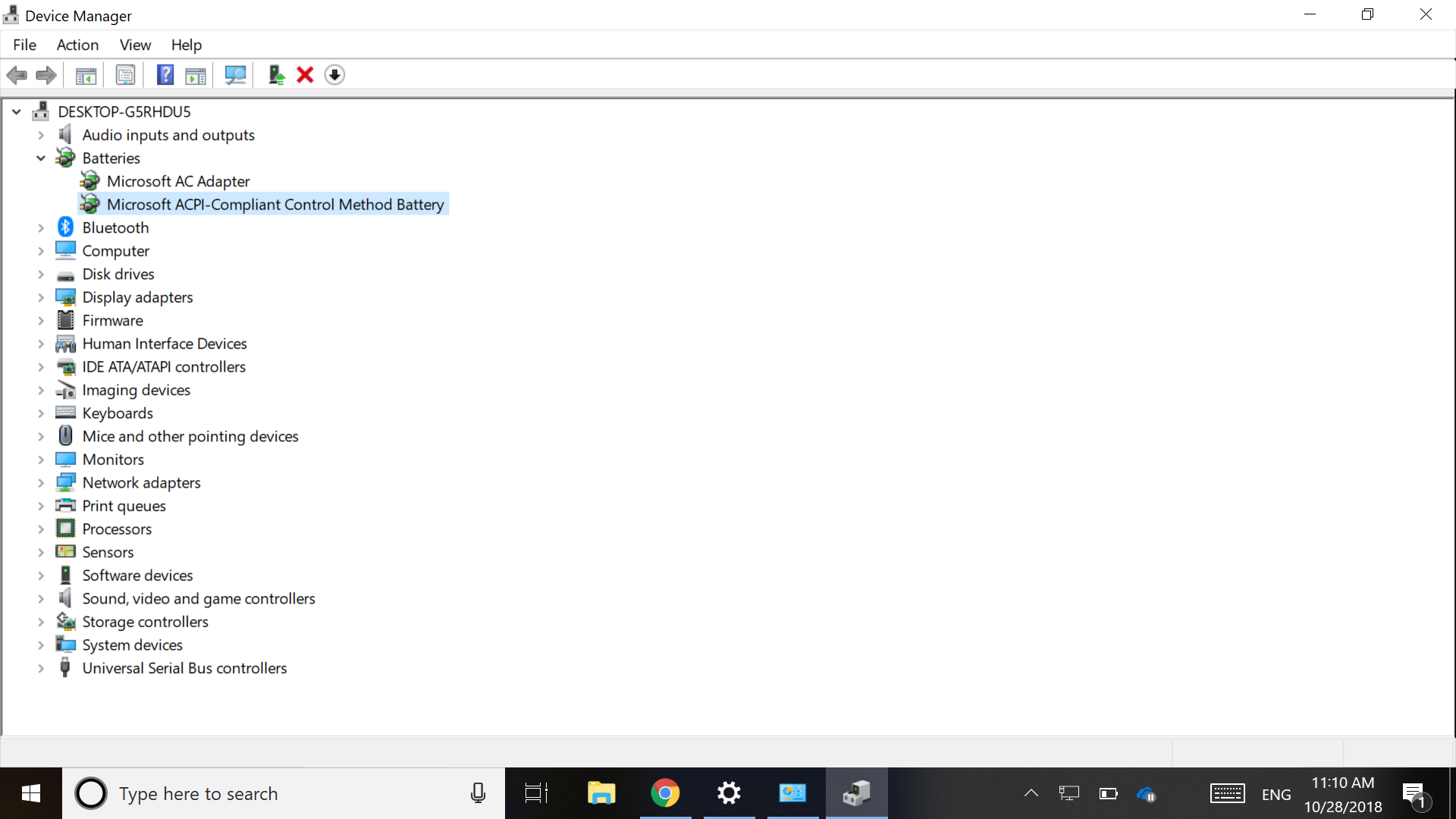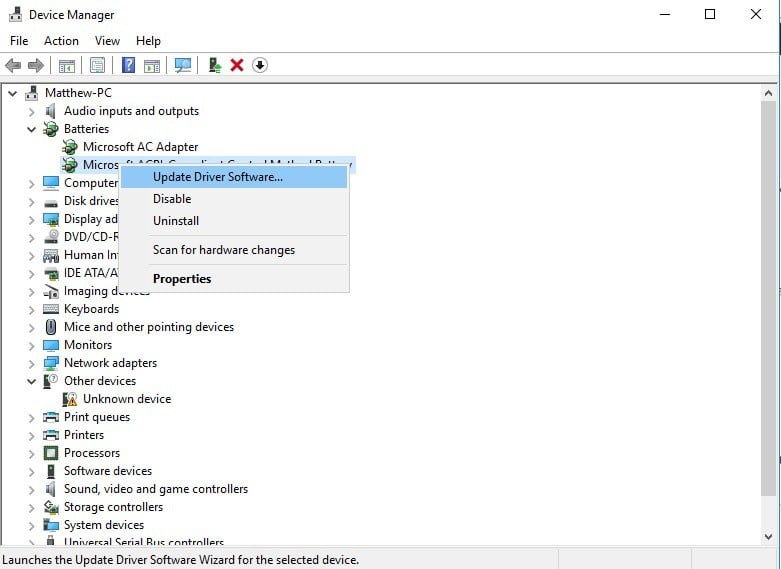Microsoft ACPI Control Method Battery Driver - Windows 8 Service. Control Method Battery Driver by Microsoft Corporation. This service also exists in Windows 10 and 7. This battery firmware update utility fixes an issue where some batteries indicate an incorrect full charge capacity value.
This test is available when 'Systems' option of the HLK Selection UI is selected.
Unlike most HLK tests, this test will have to be run four times (back to back) for proper test coverage. Each time when the test is run it will indicate what iteration its on, for example when the test is run for the first time it will print 'Iteration 1 of 4' in the log file. On the final iteration the test will print a message such as 'Iteration 4 of 4'.

In each iteration system is either expected to be charged or discharged, the log window will indicate if the system is on charge cycle or discharge cycle. If the test is on a charge cycle it will display a message 'Waiting for system to go on AC', and when the test is on discharge cycle it will display 'Waiting for system to go on DC', please plug in the charger and unplug the charger respectively. Note that log window may not be visible on all systems.
Also at the end of each test iteration the test indicates if that iteration was successful with message 'Test iteration passed' message. If the test iteration fails 'Test iteration failed' message will be printed in the log, next time when the test is run it will re-run the last iteration.
These are the four iterations of the test:
(1) System is put on DC and discharged.
(2) System is put on AC and recharged.
(3) System is put on DC and discharged.
(4) System is put on AC and recharged.
Note
If it is desired to re-start the test iteration, please run the 'Battery Validation - Drain Test Reset' test (only once), after that this test will commence from iteration one again.)
Test details
| Specifications |
|
| Platforms |
|
| Supported Releases |
|
| Expected run time (in minutes) | 1440 |
| Category | Development |
| Timeout (in minutes) | 1440 |
| Requires reboot | false |
| Requires special configuration | false |
| Type | manual |
Additional documentation
Tests in this feature area might have additional documentation, including prerequisites, setup, and troubleshooting information, that can be found in the following topic(s):
Running the test
Before you run the test, complete the test setup as described in the test requirements: System Client Testing Prerequisites.
Troubleshooting


For generic troubleshooting of HLK test failures, see Troubleshooting Windows HLK Test Failures.
For troubleshooting information, see Troubleshooting System Client Testing.
-->Battery management involves the following system components:
The battery GUI, which presents status information to users and allows them to set battery options
The power manager
The composite battery driver, a kernel-mode driver supplied by Microsoft
The battery class driver, a kernel-mode driver supplied by Microsoft
Battery miniclass drivers for individual battery devices
Devices, including batteries and some Uninterruptible Power Supplies (UPS)
Devices controlled by battery miniclass drivers include batteries and some UPS devices. Batteries can be primary (nonrechargeable) or secondary (rechargeable) cells. A UPS is, in essence, a system battery with a much larger capacity and a different alert threshold than a laptop battery.

Microsoft Composite Battery Driver Win 100
Note For UPS units connected to COM ports, writing a UPS minidriver is preferable to writing a battery miniclass driver for operating systems prior to Windows Vista.
As shown in the preceding figure, the role of each component in battery operations is as follows:
Microsoft Composite Battery Driver Download
A bus driver and one or more optional filter drivers, such as an ACPI filter, might be layered between the device and its miniclass driver.
A battery miniclass driver is the function driver for a specific type of battery or UPS device. A system can have as many battery miniclass drivers as it has different types of batteries.
The composite battery driver keeps track of the status of all the batteries in the system and acts as an intermediary between the power manager and the battery class/miniclass drivers. The composite battery driver receives IRPs from the power manager and notifies the power manager when the battery status changes (for example, when system battery power becomes critically low). The composite battery driver interacts with the battery class driver in much the same way that a battery miniclass driver does, but it is transparent to other miniclass drivers. The system has one composite battery driver, supplied by Microsoft.
The battery class driver supports all the battery miniclass drivers and the composite battery driver. The system has one battery class driver, supplied by Microsoft.
The power manager sends power and Plug and Play (PnP) IRPs to battery device stacks through the composite battery driver. The power manager does not interact directly with the battery class or miniclass drivers; all IRPs are sent through the composite battery driver.
The battery GUI gets system battery status from the composite battery driver through the power manager and presents the information to the user. The GUI also sends IRPs to the battery miniclass drivers for device-specific information. The system has one battery GUI, supplied by the hardware vendor.